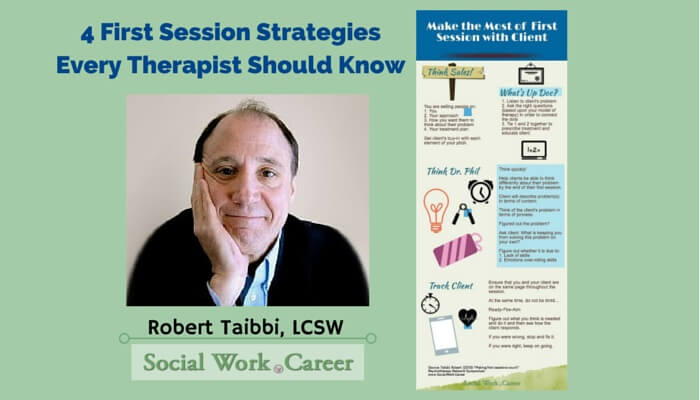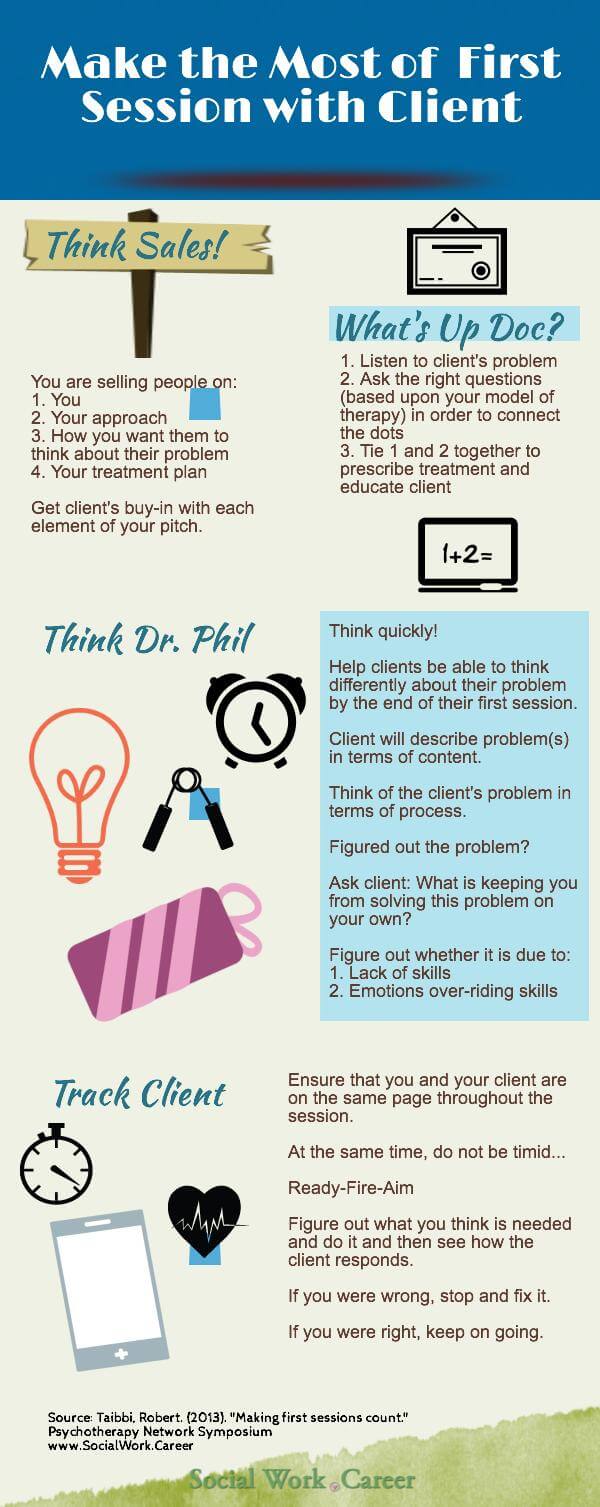Why must social workers (and other mental health providers) make the most of their first session with each client?
This is because most people drop out of therapy after only one session! Furthermore, on average, people go for a total of 5 to 8 sessions. This suggests that we need to start doing something differently during our first meetings with prospective clients [as well as perhaps in subsequent ones].
To increase my chances of getting things right with clients from the beginning, I listened to Robert Taibbi, LCSW‘s informative talk on “Making First Sessions Count” from the 2013 Psychotherapy Networker Symposium.
Below is an infographic (my first!) summarizing some of the key take-aways from Robert’s talk.
As you can see, the overarching goal is for you to get a quick understanding of what the major issue(s) are with your clients and help them feel differently by the time they are ready to leave your office.
In other words, clients need to feel better in some way regarding their problem. For example, they may have a better understanding of what their problem is and what they will need to do in order to address it.
In this manner, clients will be more likely to return for following visits.
I found Robert’s approach very interesting and relevant in today’s times. The one thing I’m not sure about is how one can integrate this style with the typical agency requirements of the long [and often boring] intake forms.
What are your thoughts/reactions to Robert’s guidance? Do you have some ideas of how one could meet an agency’s requirements while still adopting more of a solution-oriented, client-centered sales’ approach?
Some additional helpful resources from Robert:
The Art of the First Session in the Psychotherapy Networker
The Relationship Triangle in Psychology Today [includes discussion of the different roles a person may take: rescuer, victim, persecutor or adult and how to help your client move to the role of an adult]
Image: Robert Taibbi, LCSW




Thanks, Dorlee! This is such a practical, common sense breakdown that is going to be so helpful for new therapists. I’m going to remind my supervisees to drop back in here to check out their own first sessions and how they compare to the suggested steps here.
Have a great week!
Tamara,
Thanks so much for your kind feedback on the usefulness of this post. And how kind of you to plan to recommend that your supervisees compare how they are handling their first sessions vs. the recommendations here…
Best wishes,
Dorlee
Hi Dorlee,
As a coach, I find the idea of “do not be timid” and “if you were wrong, stop and fix it” to be freeing, allowing me to be more present with my clients. Thank you for sharing!
Not knowing the protocol and requirements for agency intake forms, I’m wondering if these can be made less boring just by asking the questions differently or offering the form in a different media (maybe mixing in gamification)?
Hugs to you!!
Jackie
Hi Jackie,
I love how creative you are 🙂 Thanks for sharing that great idea… using some form of gamification for the boring and long intake agency forms!
Hugs,
Dorlee